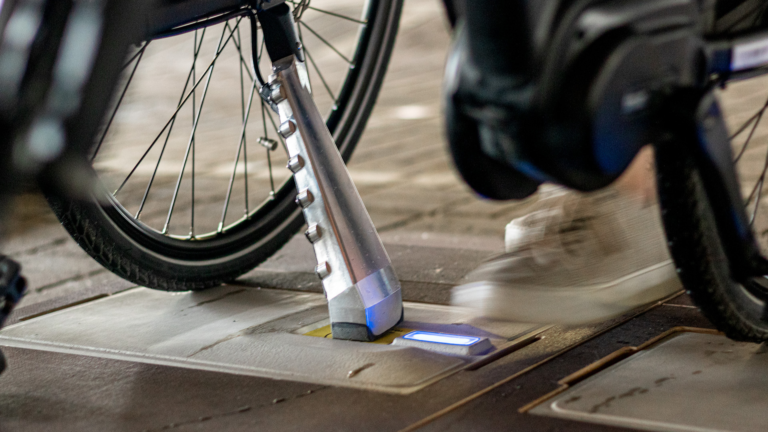Electric bikes need the right charging infrastructure
Having been in the business of building sustainable solutions for over a decade now, Christiaan knows what it takes to develop technologies that need time to develop and mature. It was back in 2009 when he started his first company with the goal of making buildings more sustainable. “Back in that day, such technologies were still very new,” he remembers. And while he ended up selling his share of the company, it had taught him plenty on how to develop complex technological solutions and bring them to market.
His connection to the world of sustainability was perhaps most notably forged while working as Innovation Manager for a German company. On behalf of it, he went to the US to set up the company’s footprint of electric vehicle charging stations, which is also where he got to know more about electric vehicles in general.
“In a meeting that I had with Uber, they told me that light electric vehicles – electric bikes, in particular – will be a big thing in the future.” This was an important insight for Christiaan and what eventually got him thinking on how to build better infrastructure for this mode of transportation.
He started Tiler (at that time Fesla Charge) in April 2019 with the mission to offer a wireless charging solution for e-bikes and has been checking off one milestone after the next since then. While he was the sole founder at the start, he was later joined by founder Olivier Coops as COO. Joris Koudijs joined the MT as CTO in 2021. The startup has also raised more than 1 million euros from UNIIQ, Delft Enterprises and PVS investments, among others, which has helped it develop its technology fast and enter the market in the Netherlands.
“Our solution is technologically challenging so we started with a pilot almost immediately,” Christiaan says. They partnered up with Ahoy to see how the technology would work and if it would meet the client’s expectations.
“It was a learning process on what it is like to build a hardware solution,” he says. “Perhaps the main lesson we learned is that it always takes a bit longer than anticipated. The first minimum viable product (MVP) for Ahoy was planned for September 2019, but instead it took until July 2020.” It was certainly not an easy endeavor to take on.
The team also learned about how to make their solution as easy to use as possible, as well as durable and sturdy. Today, Tiler’s product is essentially a block integrated in a smart kickstand, which could also be used in other light electric vehicles. “The whole idea behind our solution is that users would have a seamless experience throughout – you come, you park, you go.”

On the path to making cities greener
While Christiaan started Tiler with the simple mission to create the necessary infrastructure for electric bikes to thrive in cities, they now have a team of six that are working tirelessly to make this possible. Yet, not without the support of fellow entrepreneurs and market experts.
Just recently, Tiler joined the Accelerator program at YES!Delft is looking to use that experience on several different fronts. “We have already been able to learn from other companies and gain insights into how to manage a hardware company,” Christiaan says. “We want to learn more about how to manage our supply chain as well as how to raise follow-on funding as a deep tech company.”
To date, the startup has delivered six validation pilots of its products, known as Tiles, with a corresponding smartstand. In March 2022, they launched their commercial solution with a bike rental company at an NH hotel with very promising results. There is another batch of 20 Tiles coming up in May to conduct more promising pilots. It is a time-consuming endeavour so the team will take the coming months to find their market fit with existing customers. “We want to make sure that the customers we currently have are happy and order from us again.”
Further down the line, they will look into ways to scale up slowly while continuously iterating their product and will be looking for a larger round of follow-on funding starting in 2023.
If you ask Christiaan, the future for Tiler is an exciting one. There is a lot he and his team can achieve in making their solution ever better and smarter. “We will be looking into implementing strict safety procedures for our product,” he says. “We already get a lot of data from the batteries, but our goal for the future would be to collect even more of that data and leverage it in a smart way.”
There are ambitious goals ahead of Tiler and its team, and to make that even more tangible, they say: “We want to have 100,000 tiles by 2027 and be in 100 cities by 2040.” And so the targets have been set, may the hard work continue.
Are you inspired by this entrepreneurial journey and interested in giving your startup a boost? Then join one of the programs we offer at YES!Delft; Validation lab or Accelerator Program. If you would like to work at a startup in our ecosystem, check out the vacancies on our homepage!




